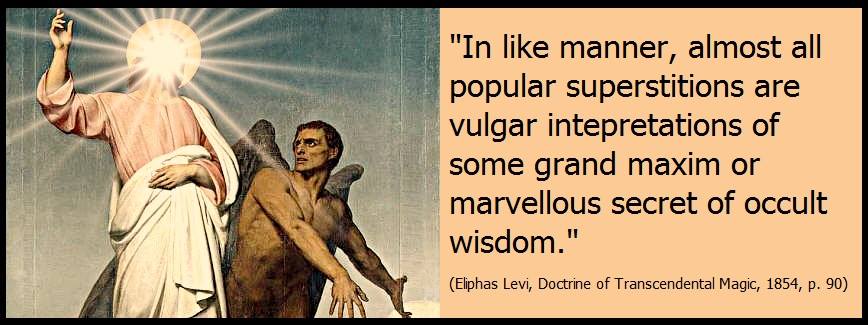We have but to open the most common book on astrology, and compare the descriptions embraced in the Fable of the Twelve Houses with the most modern discoveries of science as to the nature of the planets and the elements in each star, to see that without any spectroscope the ancients were perfectly well acquainted with the same. Unless the fact is again regarded as “a coincidence,” we can learn, to a certain extent, of the degree of the solar heat, light, and nature of the planets by simply studying their symbolic representations in the Olympic gods, and the twelve signs of the zodiac, to each of which in astrology is attributed a particular quality. If the goddesses of our own planet vary in no partic-
Page 268
ular from other gods and goddesses, but all have a like physical nature, does not this imply that the sentinels who watched from the top of Bel’s tower, by day as well as by night, holding communion with the euhemerized deities, had remarked, before ourselves, the physical unity of the universe and the fact that the planets above are made of precisely the same chemical elements as our own? The sun in Aries, Jupiter, is shown in astrology as a masculine, diurnal, cardinal, equinoctial, easterly sign, hot and dry, and answers perfectly to the character attributed to the fickle “Father of the gods.” When
angry Zeus-Akrios snatches from his fiery belt the thunderbolts which he hurls forth from heaven, he rends the clouds and descends as Jupiter Pluvius in torrents of rain. He is the greatest and highest of gods, and his movements are as rapid as lightning itself. The planet Jupiter is known to revolve on its axis so rapidly that the point of its equator turns at the rate of 450 miles a minute. An immense excess of centrifugal force at the equator is believed to have caused the planet to become extremely flattened at the poles; and in Crete the personified god Jupiter was represented without ears. The planet Jupiter’s disk is crossed by dark belts; varying in breadth, they appear to be connected with its rotation on its axis, and are produced by disturbances in its atmosphere. The face of Father Zeus, says Hesiod, became spotted with rage when he beheld the Titans ready to rebel.
In Mr. Proctor’s book, astronomers seem especially doomed by Providence to encounter all kinds of curious “coincidences,” for he gives us many cases out of the “multitude,” and even of the “thousands of facts [sic].” To this list we may add the army of Egyptologists and archaeologists who of late have been the chosen pets of the capricious Dame Chance, who, moreover, generally selects “well-to-do Arabs” and other Eastern gentlemen, to play the part of benevolent genii to Oriental scholars in difficulties. Professor Ebers is one of the latest favored ones. It is a well-known fact, that whenever Champollion needed important links, he fell in with them in the most various and unexpected ways.
Voltaire, the greatest of “infidels” of the eighteenth century, used to say, that if there were no God, people would have to invent one. Volney, another “materialist,” nowhere throughout his numerous writings denies the existence of God. On the contrary, he plainly asserts several times that the universe is the work of the “All-wise,” and is convinced that there is a Supreme Agent, a universal and identical Artificer, designated by the name of God. Voltaire becomes, toward the end of his life, Pythagorical, and concludes by saying: “I have consumed forty
Page 269
years of my pilgrimage . . . seeking the philosopher’s stone called truth. I have consulted all the adepts of antiquity, Epicurus and Augustine, Plato and Malebranche, and I still remain in ignorance. . . . All that I have been able to obtain by comparing and combining the system of Plato, of the tutor of Alexander, Pythagoras, and the Oriental, is this: Chance is a word void of sense. The world is arranged according to mathematical laws.
” It is pertinent for us to suggest that Mr. Proctor’s stumbling-block is that which trips the feet of all materialistic scientists, whose views he but repeats; he confounds the physical and spiritual operations of nature. His very theory of the probable inductive reasoning of the ancients as to the subtile influences of the more remote planets, by comparison with the familiar and potent effects of the sun and moon upon our earth, shows the drift of his mind. Because science affirms that the sun imparts physical heat and light to us, and the moon affects the tides, he thinks that the ancients must have regarded the other heavenly bodies as exerting the same kind of influence upon us physically, and

Moe is the founder of GnosticWarrior.com. He is a father, husband, author, martial arts black belt, and an expert in Gnosticism, the occult, and esotericism.

![How one in the province of the Northumbrians, rose from the dead, and related many things which he had seen, some to be greatly dreaded and some to be desired [Circ. 696 A.D.] | Book 5 | Chapter 11 How one in the province of the Northumbrians, rose from the dead, and related many things which he had seen, some to be greatly dreaded and some to be desired [Circ. 696 A.D.] | Book 5 | Chapter 11](https://www.gnosticwarrior.com/wp-content/plugins/contextual-related-posts/default.png)




